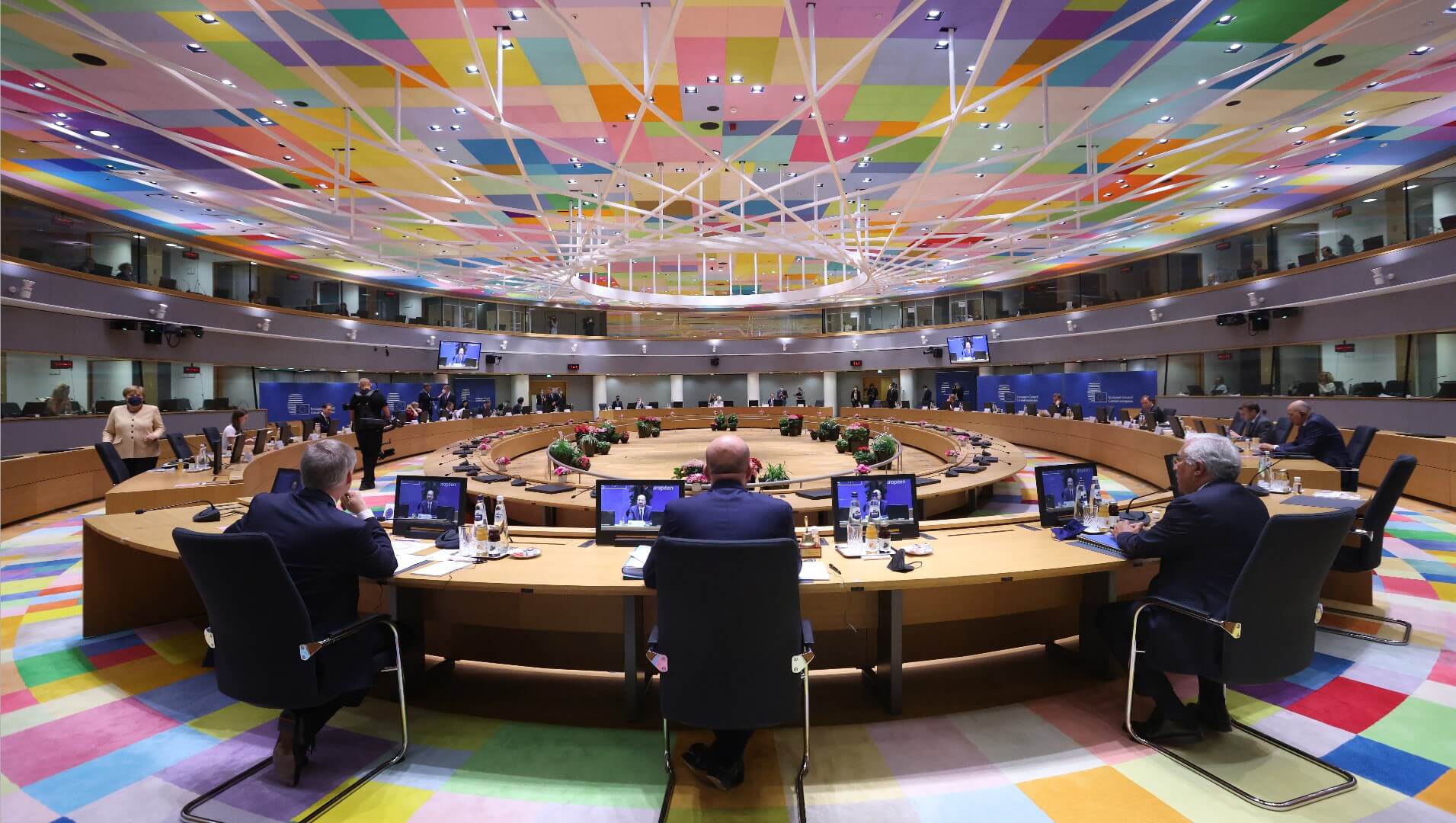European Union (EU) leaders attended the European Council Meeting in Brussels on June 24-25 to discuss various issues, including the LGBTIQ+ (Lesbian, Gay, Bisexual, Transgender, Intersex and Queer) rights, the COVID-19 pandemic, external relations, cybersecurity, economic recovery, and migration.
According to a press release, on the first day, the leaders talked about the ongoing pandemic, mobility, migration and external relations, and the topics of discussion for the second day included economic recovery and geopolitical challenges.
While appreciating “progress on vaccination and the overall improvement in the epidemiological situation,” the Council pledged to remain vigilant and monitor the new variants of the virus and discussed implementing a digital COVID certificate, which allows non-essential travel across the bloc. Additionally, the leaders agreed to “help boost global production of and universal access to COVID-19 vaccines” and welcomed the decision of the World Health Assembly (WHA) to convene a special session later this year to discuss a “Framework Convention on Pandemic Preparedness and Response.”
Also Read: EU Officials Adopt Digital COVID Certificate
The Council also agreed to continue monitoring certain, high-risk routes to control illegal migration. Furthermore, EU leaders decided to intensify “mutually beneficial partnerships” and “cooperation with countries of origin and transit” to reduce the influx of migrants and the loss of life. The Council also condemned the instrumentalisation of migrants by third parties for political purposes.
In addition, the Council reaffirmed its ties with the Secretary-General of the United Nations (UN), António Guterres, and promised to enhance cooperation between the two bodies on climate change, the ongoing pandemic, health, migration, and geopolitical challenges.
On matters of external relations, the EU leaders urged Turkey to restore ties with the bloc for a stable and secure environment in the Eastern Mediterranean. They also expressed willingness to engage with Turkey on matters of common interest, emphasising the rule of law and fundamental rights. Additionally, the Union leaders, under the guidance of the UN, committed to stabilisation in Libya.
Regarding Russia, the leaders called for the implementation of the Minsk agreement, which was intended to bring peace in parts of Ukraine, and discussed imposing additional sanctions. The Council also agreed on selective and unified engagement with Russia, saying: “The European Council expects the Russian leadership to demonstrate a more constructive engagement and political commitment and stop actions against the EU and its member states, as well as against third countries.”
Furthermore, the Council approved the fourth package of sanctions against Belarus for electoral fraud and crackdown on dissent, and called for the release of political prisoners, including Roman Pratasevich. Concerning the Sahel, the leaders pledged to support the G5 Sahel countries in their fight against terrorism. In the light of atrocities and human rights violations in Ethiopia, they called for an immediate halt to all violent activities.
Also Read: EU Agrees to Impose New Sanctions on Belarus Over Arrest of Dissident Pratasevich
Regarding cybersecurity, the Council discussed strategies to enhance security and called for appropriate measure aligning with the cyber diplomacy toolbox.
The leaders also reviewed the Next Generation EU Recovery Plan along with national recovery and resilience plans.
On the second day of the meeting, the EU governments and the heads of state discussed the post-pandemic economic challenges with Christine Lagarde, the President of the European Central Bank, and Paschal Donohoe, the President of the Eurogroup.
During the meeting, the Council discussed the LGBTIQ+ rights and fundamental rights against the backdrop of the LGBTQ+ law passed by Hungary last week, which bans the dissemination of content on homosexuality to children under the age of 18. The leaders debated and discussed the legislation to uphold the rule of law and fundamental freedoms and rebuked Hungary for violating the Union’s law.
Also Read: Hungary Passes Law Banning LGBT Content in Schools
In his concluding remarks, the President of the European Council, Charles Michel, thanked the Prime Minister of Portugal, António Costa, for the country’s presidency of the Council during these unprecedented times. Michel also hoped that the Conference on the Future of Europe would be an opportunity for leaders to promote and implement fundamental freedoms.

